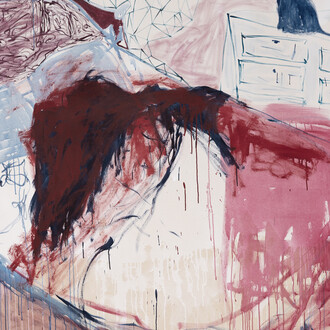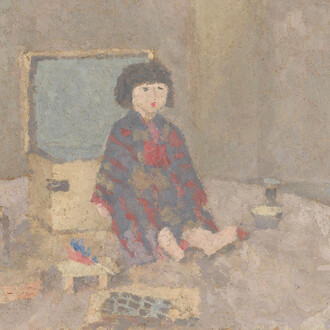Arebyte Gallery is pleased to announce the first exhibition of their 2019 programme. Titled Home, the programme attempts to reflect upon notions of housing and redevelopment, the disconnection of marginalised bodies, new ecologies for future ways of living and the relinquishing of control of such futures back to nature.
We can no longer decipher what is real or fake. Simulation has been a topic of concerned conversation for decades, and in recent years, the contours of a new contemporary art movement have begun to emerge.
The ‘Simulism’ movement has developed in resistance to the ethos of Silicon Valley, the ‘platforming’ and globalisation of culture, and the widespread availability of technologies of power like artificial intelligence, photorealistic CGI, and virtual and augmented reality. ‘Simulism’ simultaneously embraces and subverts technology, interrogating the slippery world in which we live, and proposing humanist and non-binary futures.
In a 1977 lecture, Philip K. Dick spoke of counterfeit, deranged, private worlds where alternative experiences branch off and possible futures emerge, revealing the layers of simulation mediating contemporary culture. Simulacra and Simulation , a Jean Baudrillard treatise from the early 1980s, explored how signs, symbols, realities, and societies entwine into shared experiences—and how the saturation of such simulacra was beginning to render all meaning meaningless, long before we immersed ourselves in the overwhelming onslaught of digital stimulation we take for granted today. In her Cyborg Manifesto (1984) Donna Haraway explains the virtual camera emulates rules of the real world, but in a symbolic manner. The virtual camera symbolically embodies a liminal space, an interface that enhances our physical bodies with a prosthetic extension.
Curated by Kelani Nichole of Transfer and featuring works by Morehshin Allahyari, LaTurbo Avedon, Snow Yunxue Fu, Carla Gannis, Claudia Hart, Lorna Mills, Eva Papamargariti, Pussykrew, Sabrina Ratté, Amina Ross, and Alan Warburton Re-Figure-Ground explores myth, identity, and the body. It proposes a softening – opening up an alternative view to the ideologies of Silicon Valley. Virtual space is inhabited with queer bodies; the boundaries of technology and the body are blurred, as are the lines between author, image, and algorithm. The artists unapologetically disrupt normative cultural production, demonstrating what it means to inhabit this infinitely malleable world.
















